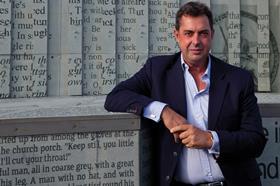Full round-up of industry reactions to the chancellor’s Autumn Statement
Industry experts give their views on the Autumn Statement
Richard Threlfall, UK Head of Infrastructure, ��ɫ����TV and Construction at KPMG, said:

“The Chancellor continues to try to hold back the tide of a growing North-South divide through commitments to extending high speed rail to the North West and Yorkshire, upgrade of the M1 to motorway standard to Newcastle and ultra-fast broadband in key cities across the country.
“While very welcome, whether these will suffice to offset the corrosive impact on the UK economy of business failures and joblessness disproportionately hitting our northern cities remains to be seen.”
Margaret Stephens, global head of infrastructure tax at KPMG, said:
“It is extremely disappointing that the Chancellor has not listened to the infrastructure industry and looked at the current tax disincentives for investment in buildings and structures.
“The current UK tax system is simply not competitive and businesses which invest in new buildings and structures including gas power stations, roads and other infrastructure will have to pay taxes at much higher effective rates than the new headline rate announced of 21%.”
“Government estimates the rate reduction to 21% will cost £3bn by 2018, whereas putting capital investment in buildings on an even footing with other business expenditure is estimated to cost much less and indeed raise tax receipts through stimulating growth.”
Institution of Civil Engineers (ICE) Director General, Nick Baveystock, said:
“Clearly government has heeded the advice of many across the industry to increase capital expenditure on infrastructure and get ‘shovel ready’ road schemes moving – demonstrating to investors that the National Infrastructure Plan is leading to visible activity. The danger however, as with the £5bn capital boost announced this time last year, is that this will fail to materialise and breed further scepticism. The Highways Agency’s will have a crucial role to play here, accelerating the delivery of the schemes while still ensuring they deliver value for money.
“Progressing short term projects to stimulate jobs and growth is vital, but it is important to remember that the NIP was intended as a long term plan, with 70% of investment to come from the private sector. We’ve seen a raft of potentially useful initiatives to help facilitate that - around pensions, planning, guarantees, ownership and funding arrangements and we also now have a pipeline of future projects. We in the industry need to keep a close eye on how these initiatives are progressing and be ready to work with government to propose new ideas if they aren’t working.
“I’m therefore pleased that Paul Deighton’s first duty as a Treasury Minister will be to be produce an assessment of Whitehall’s ability to deliver infrastructure and look forward to contributing to this review.”
Jonathan Hook, Construction Leader at PwC, said:

“All in all, this statement appears to be positive for the construction sector. Whilst the successor plan to PFI is welcome it is what the industry needed a year ago. The more important news for an ailing construction sector is the spend on roads, schools and local infrastructure including social housing. Many of these schemes can make positive difference to the sector in 2013.”
Jack Kelly, head of Deloitte’s contractors group, said:
“The contractor industry has generally welcomed the Chancellor’s Autumn Statement with its commitment to investment in infrastructure, including transportation, education and housing, efficient procurement and reduced bidding timescales.
“It appears that all the prerequisites for investment are being put in place. This will undoubtedly bring renewed confidence to an industry that has been struggling over the last year with falling order books and a number of administrations.
“The transparency announced should also assist an industry that is looking to retain its skilled workforce and whose biggest risk at present is the financial position of its supply chain. However, that investment has to start soon. The economic benefit of infrastructure investment is well documented, but that investment has not been forthcoming. It is needed now. Too many companies have failed because they have made pricing and employment decisions based on the belief that growth will return in a constantly moving fourth quarter.”
Paul Cleal, partner, PwC government and public sector said:
“The Autumn Statement had a welcome focus on growth, jobs and attracting business to UK plc. In particular, more money for Local Enterprise Partnerships and devolving funding for housing, transport and skills could also be a step forward for localism”
“The announcements on infrastructure investment are also positive for long term growth and will be a signal to companies here and overseas that UK plc is open for business. However, re-investing current spending in infrastructure is a good step, but there’s still a way to go to deliver good growth.”
“Public sector austerity is also here to stay well into the next Parliament. Further spending cuts will require public sector leaders not only to reduce costs but also act on to manage the demands on public services”
“But there is a danger that the public develops an immunity to austerity and the continuing squeeze of public spending ceases to be news, until the consequences start to be really felt. The public needs to be on board around understanding, at a local level, the implications and extent of the changes and understand the options, how and why services are changing. The new normal needs public services being more effective, but essentially doing less with less.”
Nick Jones, Director of PwC’s Public Sector Research Centre said:
“As temperatures drop, all eyes have today turned to the bleak outlook for our public finances, with austerity measures set to continue for some years yet. However, on the growth agenda, one of the bright spots from the Chancellor’s Autumn Statement was his mention of the devolution of growth-related spending and a greater role for Local Enterprise Partnerships (LEPs).
“The acceleration of devolved powers on economic development is important where the costs, benefits and solutions are localised - such as local transport and planning policy.
“Government could also use its second wave of City Deals to increase focus on how to unlock cities’ individual growth challenges. Cities need to take tailored approaches rather than ticking the boxes of the standard menu of priorities for city region development.”
Paul King, CEO at the UK Green ��ɫ����TV Council said:

“George Osborne has once and for all nailed his colours to the mast today, and none of those colours are green. His obsession with gas not only makes a mockery of our legally binding carbon targets, it makes for a stark comparison with his stubborn refusal to exploit the potential for energy savings in our homes and buildings.
“Yet another opportunity goes begging for HMT to provide much needed support to incentivise the Green Deal, to re-commit and clarify the zero carbon new build policy and to pave the way for a national energy audit of our commercial buildings. All no-brainers and all desperately wanted by industry.
“The construction industry will welcome the increased capital spending on infrastructure and schools, but how much of that will be green building? All schools, including free schools, should be green – with better daylighting, better air quality and lower running costs in the long-term. Sadly Michael Gove doesn’t seem to think the learning environment is that important.”
Richard Steer, chairman of Gleeds:

“The winter budget has only confirmed what most of us have been saying for many months; that things are not getting any better and that recovery was not going to occur in a construction industry stripped of Public Sector work without immediate, managed, and serious investment. The formal announcement of PF2, injecting capital into infrastructure, highlights the failure of the government to persuade the banks and pension funds to lend, rather than the success of an economic policy to stimulate growth. I am not convinced that anything like the £5 billion ring-fenced for infrastructure and £1bn for schools will improve the short term fortunes of contractors, designers or consultants. The issue is one of timing and whether the promised investment is credible.
Even if it does trickle through, many firms have had to strip out the staff that would have undertaken the work which government originally said would be privately funded. This industry is like a super-tanker, not a dinghy. It takes a long time to change course and those making the decisions fail to realise the damage a stop/start philosophy has on those making spending decisions.
There is some arguably good news for smaller employers with an increase in tax allowances for capital items, and the reduction in corporation tax is welcomed but you need to be making profit for those allowances to take effect.”
Craig MacDougall, associate of P3 Advisory at Aecom, said: “It is good to see PF2 published. There are some quite reasonable positions adopted, including equity stakes for UK Plc, and of course streamlined delivery which is good and attractive to all parties involved.
“The assessment of risk will be interesting as this will help the risk pricing associated with riskier services (i.e. cleaning and catering), as these services typically and understandably draw a risk pricing premium in the early years of a Project from FM Contractors.
“Coupled with what appears an Interim strategy for PPP projects, via the Temporary Lending Programme (part of UK Guarantees), this should help mobilise and given confidence to a frequently ‘bashed’ marketplace.”
Gary McCarthy, director of WSP, commented on PF2:
“Essentially this is a risk-balancing exercise and on the one hand Government has got it absolutely right by taking responsibility for their share but on the other hand they’ll now need to be sure they are resourced to manage it effectively – the announcements today have started the ball rolling on this but the sufficiency of the resource will only be tested with actual projects.”
Liz Peace, chief executive of the British Property Federation, said on the extended grace period on empty property rates:
“This is a welcome first step towards mitigating the damage being wrought by empty property rates and we commend the Chancellor for taking heed of the powerful body of evidence that we and other industry groups submitted to MPs and to Treasury over the Summer.
“The Government is rightly desperate to get Britain building again. Introducing a grace period for empty property rates for new development will remove a millstone from around neck of the property industry, and let it get on with what it does best – investing in our towns and cities, regenerating communities and building the offices, factories and shops in which we work.
“However, we urge ministers to look further at how this tax on business failure continues to act as a drag on economic growth.”

RIBA President Angela Brady said:
“A healthy construction industry is vital if the UK is to recover from the economic decline of the past few years. We do not believe the Autumn Statement goes far enough to tackle this housing crisis. The commitment to fund 120,000 is welcome but significantly short of the mark; we need to be building 300,000 new homes a year to meet current demands and solve the housing shortage.
“Design quality is vital for creating long lasting sustainable homes and communities and offering real long-term value to the taxpayer. The Government must ensure that the promised investment in housing and schools is spent on well-designed buildings where people want to live and where children are inspired to learn.”
Richard Payne, director of consulting at the global programme manager Turner & Townsend, said on PF2:
“The original PFI model may have won a few economic battles, but it lost the image war.
“Deeply discredited in the eyes both of the public and the Chancellor, it soon became devalued in the eyes of investors too - and was banished to the wilderness.
“But with banks still finding it difficult to lend at the levels and timescales needed to fund infrastructure projects, the PFI pill has been dusted off and sugarcoated.
“After a year-long review, the Chancellor has concluded that it is still a viable remedy to get cash flowing into social infrastructure projects.
“By offering greater equity stakes in big projects, the government hopes to tempt insurance companies and pension funds into contributing more. So far they have offered only a fraction of the money the Chancellor asked for in last year’s Autumn Statement.
“But the new-look PFI, dubbed PF2, is a rebranding rather than a radical restructuring.
“Critics argue that by giving away more equity, the government will drive up the projects’ final cost to the public.
“But the government is clearly not in a position to meet the capital cost of these vast projects without significant investor input. By taking a small equity stake in the projects itself, the government aims to ensure the public coffers share in their success too.
“The string of projects announced by the Chancellor - £1 billion on roads, £1 billion on schools and £600 million on scientific research infrastructure - will reassure the banks that there is a genuine pipeline of these projects.
“If they can be convinced that PFI is back for good, and at better terms than its previous incarnation, they will be more likely to open their vaults once again.”
Rob Tincknell, Chief Executive Officer of Battersea Power Station Development Company, said:

“Today’s confirmation that a £1bn loan is being made available to fund the extension of the Northern Line is great news and will be welcomed by everyone that will be served by this infrastructure. The redevelopment of the Battersea Power Station will provide a major boost to London by creating 3,500 new homes, generating 26,000 new jobs as well as leading to the restoration of the iconic Power Station itself.
The Chancellor’s confirmation of the funding arrangements follows five years of work into finding a public transport solution for this £8bn prime central London redevelopment, and will finally unlock the massive economic and social benefits this regeneration will bring to London and the UK economy.
This is a great example of the public and private sector working together for the benefit of the UK economy.”



























1 Readers' comment